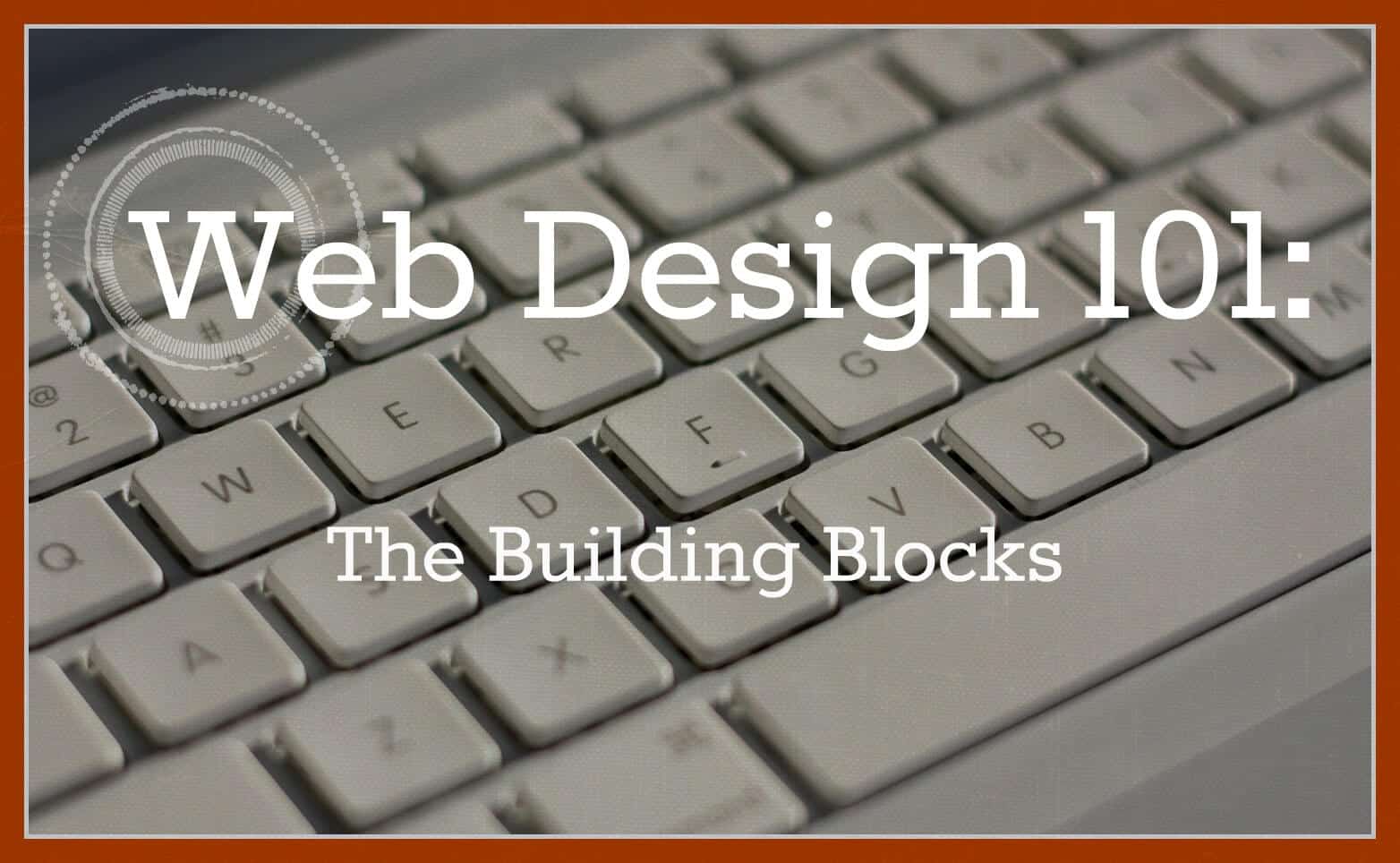Last week, I went over the top 5 reasons why you should start a business blog. Today, I’ll talk about the decisions you’ll need to make before you get started: where to host your blog, which URL to use, and what to talk about.
Figuring out how to start a blog for your business can be complicated, but we’ll break it down for you.
Blogger vs. WordPress
If you’ve spent any time researching this subject, you’ve come across these blogging giants time and time again, and for good reason. They are both free, easy to use, and seem to set the standard for blogging. They each have their own pros and cons, but there is a clear winner.
Blogger is run by Google, so it automatically wins people’s trust. It’s extremely easy to set up and use, and even offers basic traffic stats so you can keep track of which posts are the most popular. You can customize your blog by adding pages and widgets and changing your look, template, and layout…but there’s a limit to your customization.
I’ve seen some really great Blogger sites, but most of them don’t hold a candle to a typical WordPress site. (Or, if they do, it took so much coding to get there that you might as well just get a WordPress site.) For this reason, we don’t recommend Blogger for anybody but the most casual users (i.e. you just want to keep the grandparents updated about your life and don’t want to hire someone to do any coding for you.)
WordPress, on the other hand, is the standard when it comes to professional blogs. WordPress platforms are far more customizable and you can support your entire website with WordPress, offering e-commerce options, interactive event calendars, image sliders, and more.
While WordPress is free to use, you will still have to pay for your URL and your site’s hosting. There is an option to have WordPress host it for you, but we don’t recommend that route for a professional business blog.
So, long story short. If you’re adding a blog to an existing site (or you hope to turn your blog into a full site one day), go with WordPress. If you’re simply looking for a way to keep friends and family updated on your life and you don’t actually plan on making any money from blogging, Blogger is fine.
Of course, you can always start out with Blogger to see how things go, and then upgrade to a WordPress site once things really start taking off. This tutorial from Nathalie Lussier shows you how to move your blog from Blogger to WordPress.
Where Should I Keep My Blog?
“Well, hold on a second, Julie. In that last article about blogging you talked a lot about the Clean My Space blog and SHE keeps her blog on a separate URL from her business page. Should I do that, too?”
Well, it depends.
In Melissa Maker’s case, she likely wants her blog to have a much wider reach than her cleaning business’ site. CleanMySpace.ca (the business) is only marketed to Toronto-area people who want to pay someone else to clean their homes. CleanMySpace.com (the blog) is for anyone in the English-speaking world who wants to learn how to clean their own homes.
Put this way, you can see the two sites actually have two different uses.
The Clarity blog is featured as a part of our company’s website. That’s because we’re using our blog to gain credibility (i.e. to prove that we are experts) in the world of web designing, internet marketing, and search engine optimization.
Our site is marketed to anyone (regardless of location) who wants to solve problems within their business, improve their website, and gain traction and traffic leading to sales. Our blog, on the other hand, is marketed toward people who want to solve problems within their business, improve their website, and gain traction and traffic leading to sales.
Oh, wait…that’s the same thing. (Which is why our blog is a part of our website.)
Yeah, I know I also said in the previous post that Melissa Maker’s blog (CleanMySpace.com) adds credibility to her business (CleanMySpace.ca). That’s still true. But the intent of these two websites is totally different. If you wanted to hire her after reading the blog, all the better. But that’s not why you originally went to a blog about cleaning your own house. Make sense?
So, if you’re starting a personal blog about how much you love hydroponic gardening, it wouldn’t make any sense to include your gardening blog on your contracting business’ website. You would, however, want to include a blog on your contracting business’ site about simple ways homeowners can maintain their property to prevent costly repairs later. It establishes yourself as a knowledgeable, trustworthy contractor who will take care of your client’s homes both online and off.
Say Hello, and Let's Get To Work Together
What Do I Say?
In the previous article, I mentioned how Google recently rolled out a new search engine algorithm, one that places importance on the quality of the content rather than keyword counts. Fortunately for you, this means that you don’t necessarily need to be an SEO expert to become a blogger. Unfortunately for you, it means you’ll actually have to put work into writing something valuable and important.
Writer’s block can be the hardest part of starting a blog, even if you’re a natural writer. (Trust me on this.) But there are a few tricks you can use to keep the ideas flowing.
- FAQs: Make a list of the questions you get most frequently from your customers. What type of advice are you most often asked to give? What do they want to know? Beat ’em to the punch and answer each question in the form of a blog post.
- Secrets: Every industry has its “secrets,” things that the average layperson doesn’t even know to ask. Make another list of things you wish all of your customers knew about your industry and you’ve got an entirely new list of blog post ideas.
- A Day in the Life: For certain industries, your readers might like simply hearing about interesting things you’ve been up to. Are you a carpenter who just built an amazing bar cart out of nothing but old pallets? Create a blog post tutorial. Did your coffee shop’s top barista just invent the perfect latte flavor for the season? Blog about it. (Now that I’m thinking about it, a Peeps Latte would be perfect for spring!)
- Industry News: Get yourself an RSS Reader. Next, do a search to find other people who are blogging about your industry. Read these blog posts every day. Now you can see what everyone else is talking about and jump on the trending topics.
- Be Prepared: After you’ve been doing this a while, you’ll notice that ideas will start occurring to you randomly during the day (usually while you’re in traffic or something, because that’s just Life). Make sure you’re prepared for these light bulb moments by keeping a notepad, Smartphone, or voice recorder easily accessible so you can write them down. (I keep a cute journal in my purse so I can jot down ideas at red lights and Panera.)
- Keep a Narrow Focus: You may be a jack-of-all-trades, but blogs are best when they are kept at a fairly narrow focus. If you want to start a cooking blog, keep all the posts food-related. If you want to start a blog for your moving company, don’t start talking about fashion. You have a bit of wiggle room around what’s considered a related topic, just make sure your readers aren’t getting something they’re not interested in or didn’t sign up for.
- Enlist Some Help: If you still don’t trust your own abilities, you can always hire a professional to write, edit, or simply brainstorm some blog posts for you. Having a “non-expert” (that is, someone who’s expert at writing, but not expert at your business) write your blog posts can be tricky, so if you go this route, make sure to provide them with the facts upfront or at least provide direction and feedback to make sure the post is as accurate as possible.
How Much Should I Write?
This question can stump even the most professional blogger. On the one hand, you want to make sure you are posting enough quality information that Google starts to recognize you as a leader in the industry. On the other hand, you don’t want to “overblog,” that is, write so much that your quality—and your readership—goes down the tubes.
The magic number seems to rest somewhere between 1-3 times per week. If you have a lot of quality content to share (you’re a food blogger who creates multiple amazing dishes every week), you can aim higher. If you’re like most people (you’re concerned that you might not be able to keep up with 3 amazing posts every week AND stay on top of your business) once per week is fine.
If you’re talking about post length, the magic number (for Google) is anywhere from 500-2000 words. (Don’t worry, WordPress has a word counter so you don’t have to break out the calculator).
The important thing to remember is that your blog is an extension of you, much like your business is. Whenever you sit down to write your next post, imagine that your words will be read by thousands (because…well, they will be). Speak as though you’re writing to a trusted, loyal client and you’ll be all right.
What are your favorite tips and tricks for coming up with interesting blog ideas? Do you rely on your RSS Reader? Are you smitten with spreadsheets? Leave us a comment!
Next week, I’ll talk about some of the fun ways you can “dress up” your blog to make it more interesting, interactive, and informative.
Clarity Creative Group is a web design & internet marketing company located in beautiful Orlando, Florida. We post new blog articles every Monday (usually).
Save
Save
Save







